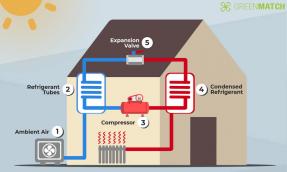
“E-waste” is the disposal of electronic products or components that are broken or obsolete, for example, computers, televisions, VCRs, etc. Electronics have always produced waste, however, in recent years, the amount being discarded has increased immensely. A huge part has to do with the advances in technology and consumer demand. Devices used to be kept for many years until they were replaced. Now, people only hold on to devices for a couple of years before trading it in for the newest model. According to a January 2019 report from the World Economic Forum, e-waste in now the fastest growing waste stream in the world, with an estimated waste stream of 48.5 million tons in 2018
One way to help fix the abundance of e-waste is to increase the repair and refurbishment of electronic devices. Instead of simply throwing devices away, the repair or refurbishment of devices could help cut down on e-waste.
While repair of devices is favored, if a device is unfixable, then recycling the product should be the next step. When devices are incorrectly disposed of in landfills, toxic materials can be released from the devices and into the environment. In fact, E-waste represents 2% of America’s trash in landfills, but it equals 70% of overall toxic waste. In addition, electronic waste contains deposits of precious metal estimated to be between 40-50 times richer than ores mined from the earth. Therefore, the recycling of these devices could help to cut down on mining as well.
In the United States, although there is no federal law on electronics recycling, 26 states have mandated electronics recycling which the majority require manufacturer responsibility to fund the recycling effort. While this is a start to the e-waste issue, due to the increasing amount of e-waste, more action needs to take place to ensure the proper disposal of e-waste is done in order to protect our environment.
There are various types of e-waste that require different methods of recycling, which can be difficult to decipher. However, there are some great resources out there that can help to answer questions about recycling e-waste, some of which include:
https://mashable.com/2018/04/26/how-to-recycle-ewaste/#jFHzLAyO6kqW
https://recyclingworksma.com/find-a-recycler/
To read more about this topic: https://www.thebalancesmb.com/e-waste-and-the-importance-of-electronics-recycling-2877783
https://www.dosomething.org/us/facts/11-facts-about-e-waste
- Filed Under: Environment
- ( 9352 ) views
- ( 0 ) Ratings
- ( 14 ) Discussions
- ( 9 ) Group Posts
Reply/Leave a Comment (You must be logged in to leave a comment)
Connect with us!
Subscribe to our monthly newsletter:
Related Posts
-

-

-
 Green Things Summit Apr 17, 2024
Green Things Summit Apr 17, 2024 -

-




























Not a Member Yet? Register and Join the Community | Log in